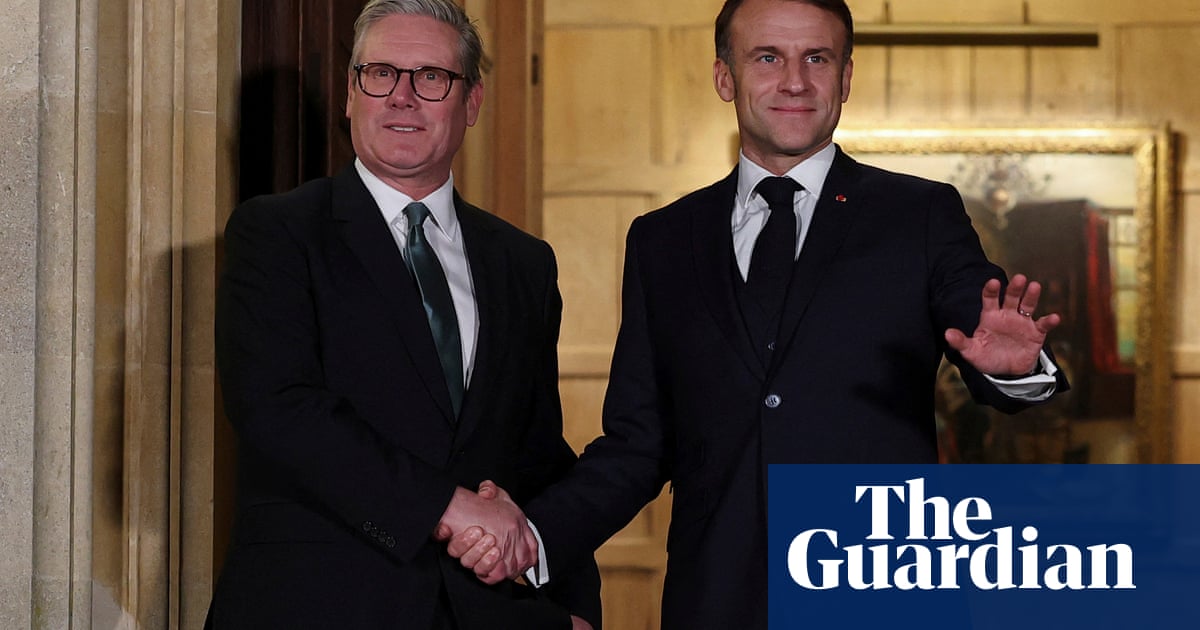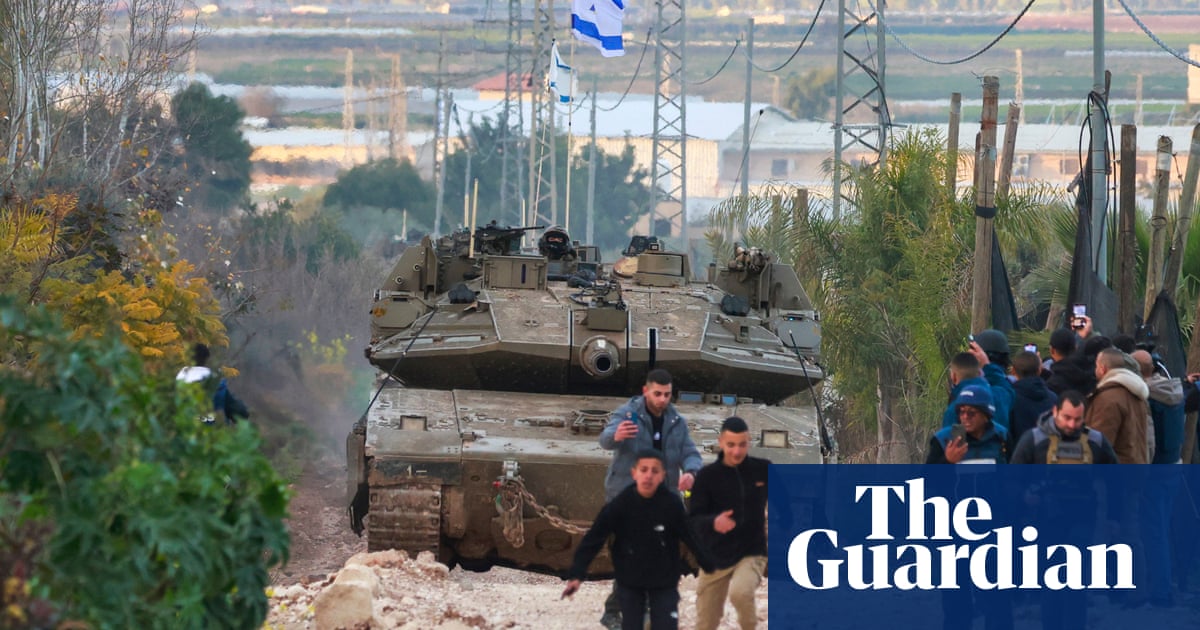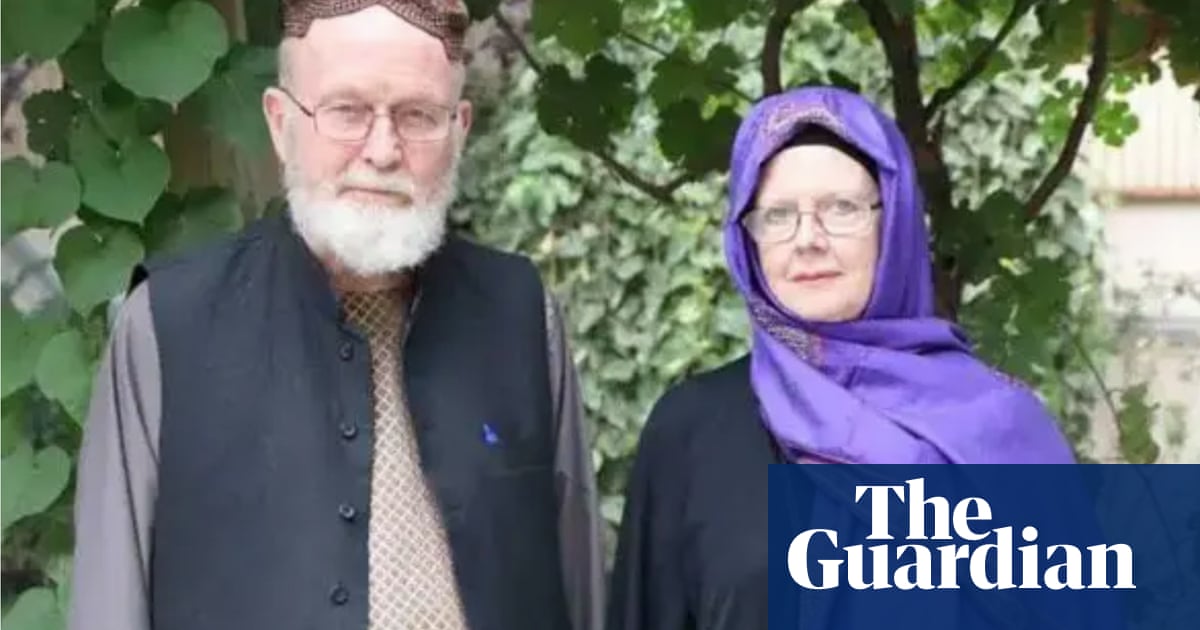Opening summary
In its first statement since a ceasefire between Israel and Hezbollah took effect on Wednesday, the Lebanese militia proclaimed “victory” without making any direct mention of the ceasefire.
The militia said its fighters “remain fully equipped to deal with the aspirations and assaults of the Israeli enemy” and that its forces would monitor Israel’s withdrawal from Lebanon “with their hands on the trigger”.
The statement came as thousands of people displaced from southern Lebanon began returning home despite warnings from the Israeli military that they should stay away while its forces remained in the area. The Lebanese army asked displaced people to avoid frontline villages and towns near the UN-drawn blue line that separates the two countries.
The 60-day ceasefire agreement brokered by the US between Israel and Hezbollah came into force at 4am local time on Wednesday, and represents a major milestone in the 14-month-old conflict.
Here are some of the latest developments:
-
The UN’s secretary general, António Guterres, said the Lebanon ceasefire was the “first ray of hope” in the regional conflict after the “darkness of the past months”. “It is essential that those who signed the ceasefire commitment respect it in full,” Guterres said on Wednesday. He reiterated his call for an immediate ceasefire in Gaza. In a sign of how volatile the situation remains, Israeli forces opened fire on a number of cars that attempted to enter what it said was a restricted area on Wednesday.
-
Doubts over whether the ceasefire would hold were widespread on both sides. Supporters of Hezbollah, which has suffered heavy losses since October 2023, celebrated the group’s survival and waved its yellow and green flag across southern Beirut on Wednesday. Iran, Hezbollah’s ally, welcomed the end of Israel’s “aggression” in Lebanon. In Israel, the ceasefire has met a more mixed reaction where rightwingers and residents of Israel’s north have criticised the agreement. Dozens of people gathered outside the Israeli army’s headquarters in Tel Aviv on Tuesday night to protest against the ceasefire.
-
The French government has claimed that Benjamin Netanyahu has immunity from arrest warrants issued by the international criminal court (ICC) for war crimes on the grounds that Israel is not an ICC member. The claim came soon after Netanyahu’s cabinet agreed to a French-backed ceasefire in Lebanon and is in contrast to Paris’s attitude towards last year’s ICC war crimes warrant issued against Vladimir Putin, another leader of a non-member country.
-
Netanyahu said Israel had submitted to the ICC its intention to appeal against the arrest warrants, and demand a delay in their implementation. In a statement from his office, he said: “Should the ICC reject the appeal, this will underscore to Israel’s friends in the US and around the world how biased the ICC is against the state of Israel.”
-
The ceasefire in Lebanon came after Israel launched the heaviest day of raids on Beirut, including a series of strikes in the city’s centre. At least 42 people were killed in Israeli strikes on Beirut and the south of Lebanon before the ceasefire began. Hezbollah also fired rockets into Israel, triggering air raid sirens.
-
In Gaza, the death toll passed 44,282 on Wednesday. Gaza’s health ministry said an additional 104,880 Palestinians have been injured since October 2023. An Egyptian security delegation is reportedly expected to travel to Israel on Thursday to discuss a Gaza ceasefire deal. The US will renew a push for a ceasefire in the Palestinian territory, president Joe Biden said.
-
At least 12 Palestinians, including children and women, were killed in an Israeli strike on a school in central Gaza City on Wednesday, according to the Palestinian news agency Wafa. A pregnant woman and two other Palestinians were killed in Israeli bombing in Beit Lahia in northern Gaza and Khan Younis in the south on Wednesday, Wafa reported.
-
Two journalists were injured when Israeli forces “opened fire” on a group of journalists covering a border town of Khiam in south-east Lebanon on Wednesday, Lebanon’s National news agency said. A video journalist told AFP that he was shot at while reporting in Khiam and that it was clear that the group were journalists.
-
The Biden administration is reportedly pushing ahead with a $680m arms sales package to Israel. The package includes thousands of joint direct attack munition kits (JDAMs) and hundreds of small-diameter bombs, Reuters reported.
Key events Show key events only Please turn on JavaScript to use this feature
Israeli tank fire hit three towns along Lebanon’s south-east border with Israel on Thursday, Lebanese security sources and state media said, a day after a ceasefire barring “offensive military operations” came into force.
Reuters reports that tank fire struck Markaba, Wazzani and Kfarchouba, all of which lie within two kilometres of the blue line demarcating the border between Lebanon and Israel. According to the news agency, one of the security sources said two people were injured in Markaba.
A ceasefire between Israel and Lebanese armed group Hezbollah took effect on Wednesday under a deal brokered by the US and France, intended to allow people in both countries to start returning to homes in border areas shattered by 14 months of fighting.
But managing the returns have been complicated, reports Reuters. Israeli troops remain stationed within Lebanese territory in towns along the border, and on Thursday morning the Israeli military urged residents of towns along the border strip not to return yet for their own safety. The three towns hit on Thursday morning lie within that strip.
Reuters said there was no immediate comment on the tank rounds from Hezbollah or Israel.
Under the ceasefire terms, Israeli forces can take up to 60 days to withdraw from southern Lebanon. Israeli prime minister, Benjamin Netanyahu, said he had instructed the military not to allow residents back to villages near the border.
Lebanon’s speaker of parliament, Nabih Berri, the top interlocutor for Lebanon in negotiating the deal, had said on Wednesday that residents could return home.
Lebanon’s parliament speaker, Nabih Berri, set a 9 January date for the house to elect the country’s president, the state news agency (NNA) reported on Thursday.
For today’s First Edition newsletter, Archie Bland spoke to the Guardian’s William Christou, as he returned from a reporting trip to the southern border of Lebanon, about what he saw and what comes next after a ceasefire between Israel and Hezbollah. You can read the interview here:
An Egyptian security delegation is reportedly expected to arrive in Israel in an effort to reach a Gaza hostage and ceasefire deal, writes the Times of Israel today.
Citing the Hezbollah-linked al-Akhbar news outlet, the Times of Israel reports that officials from Cairo visting Tel Aviv are expected to present a “comprehensive vision” for an agreement.
It adds that al-Akhbar’s report of the plans detail calls for a truce that will initially last a month or two and will see the gradual release of hostages, with first priority given to older captives or those who are sick, the Rafah border crossing between Egypt and Gaza to be quickly returned to operation (under the supervision of the Palestinian Authority, with Egyptian oversight), and an increase in humanitarian aid and medications for Gaza.
The Times of Israel write:
The report also says that Israel will initially be permitted to maintain its military positions within Gaza, but without carrying out operations.
While not mentioned in the report, the potential deal is also assumed to include the release of Palestinian prisoners.”
Opening summary
In its first statement since a ceasefire between Israel and Hezbollah took effect on Wednesday, the Lebanese militia proclaimed “victory” without making any direct mention of the ceasefire.
The militia said its fighters “remain fully equipped to deal with the aspirations and assaults of the Israeli enemy” and that its forces would monitor Israel’s withdrawal from Lebanon “with their hands on the trigger”.
The statement came as thousands of people displaced from southern Lebanon began returning home despite warnings from the Israeli military that they should stay away while its forces remained in the area. The Lebanese army asked displaced people to avoid frontline villages and towns near the UN-drawn blue line that separates the two countries.
The 60-day ceasefire agreement brokered by the US between Israel and Hezbollah came into force at 4am local time on Wednesday, and represents a major milestone in the 14-month-old conflict.
Here are some of the latest developments:
-
The UN’s secretary general, António Guterres, said the Lebanon ceasefire was the “first ray of hope” in the regional conflict after the “darkness of the past months”. “It is essential that those who signed the ceasefire commitment respect it in full,” Guterres said on Wednesday. He reiterated his call for an immediate ceasefire in Gaza. In a sign of how volatile the situation remains, Israeli forces opened fire on a number of cars that attempted to enter what it said was a restricted area on Wednesday.
-
Doubts over whether the ceasefire would hold were widespread on both sides. Supporters of Hezbollah, which has suffered heavy losses since October 2023, celebrated the group’s survival and waved its yellow and green flag across southern Beirut on Wednesday. Iran, Hezbollah’s ally, welcomed the end of Israel’s “aggression” in Lebanon. In Israel, the ceasefire has met a more mixed reaction where rightwingers and residents of Israel’s north have criticised the agreement. Dozens of people gathered outside the Israeli army’s headquarters in Tel Aviv on Tuesday night to protest against the ceasefire.
-
The French government has claimed that Benjamin Netanyahu has immunity from arrest warrants issued by the international criminal court (ICC) for war crimes on the grounds that Israel is not an ICC member. The claim came soon after Netanyahu’s cabinet agreed to a French-backed ceasefire in Lebanon and is in contrast to Paris’s attitude towards last year’s ICC war crimes warrant issued against Vladimir Putin, another leader of a non-member country.
-
Netanyahu said Israel had submitted to the ICC its intention to appeal against the arrest warrants, and demand a delay in their implementation. In a statement from his office, he said: “Should the ICC reject the appeal, this will underscore to Israel’s friends in the US and around the world how biased the ICC is against the state of Israel.”
-
The ceasefire in Lebanon came after Israel launched the heaviest day of raids on Beirut, including a series of strikes in the city’s centre. At least 42 people were killed in Israeli strikes on Beirut and the south of Lebanon before the ceasefire began. Hezbollah also fired rockets into Israel, triggering air raid sirens.
-
In Gaza, the death toll passed 44,282 on Wednesday. Gaza’s health ministry said an additional 104,880 Palestinians have been injured since October 2023. An Egyptian security delegation is reportedly expected to travel to Israel on Thursday to discuss a Gaza ceasefire deal. The US will renew a push for a ceasefire in the Palestinian territory, president Joe Biden said.
-
At least 12 Palestinians, including children and women, were killed in an Israeli strike on a school in central Gaza City on Wednesday, according to the Palestinian news agency Wafa. A pregnant woman and two other Palestinians were killed in Israeli bombing in Beit Lahia in northern Gaza and Khan Younis in the south on Wednesday, Wafa reported.
-
Two journalists were injured when Israeli forces “opened fire” on a group of journalists covering a border town of Khiam in south-east Lebanon on Wednesday, Lebanon’s National news agency said. A video journalist told AFP that he was shot at while reporting in Khiam and that it was clear that the group were journalists.
-
The Biden administration is reportedly pushing ahead with a $680m arms sales package to Israel. The package includes thousands of joint direct attack munition kits (JDAMs) and hundreds of small-diameter bombs, Reuters reported.

 2 months ago
47
2 months ago
47













































